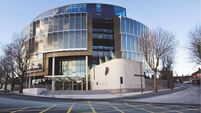Conference to discuss cancer care advances
Cancer care and research will come under the spotlight at a two-day conference opening in Dublin today.
Renowned cancer experts will address delegates at Cancer 2007, where the latest developments and challenges to deliver 21st century medicine to cancer patients will be highlighted.













